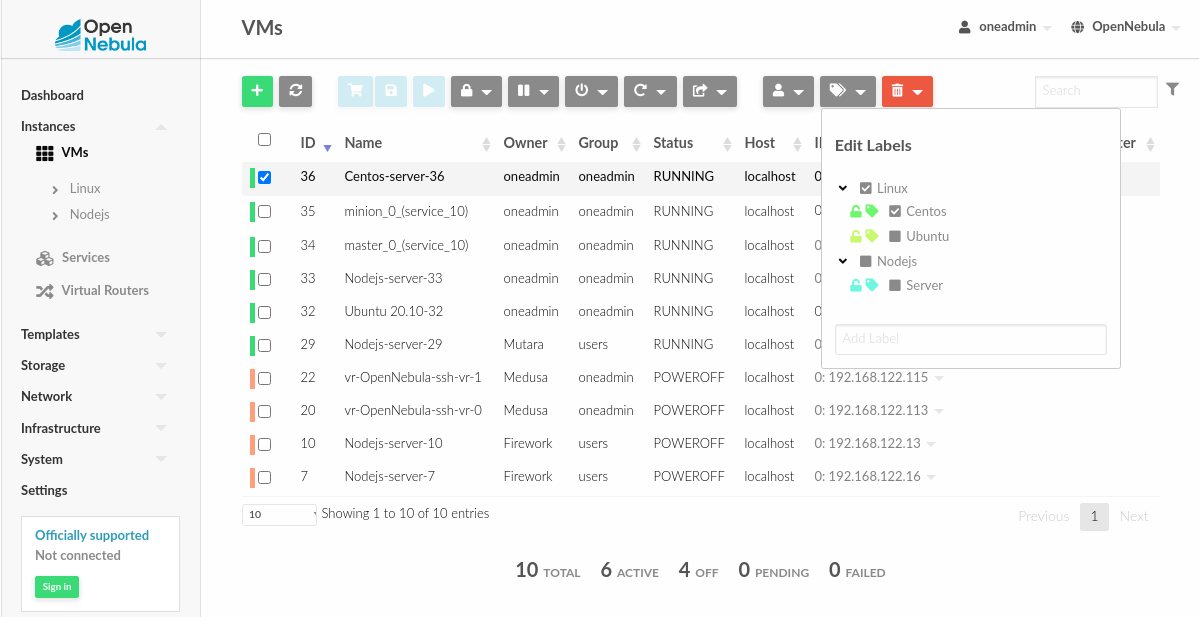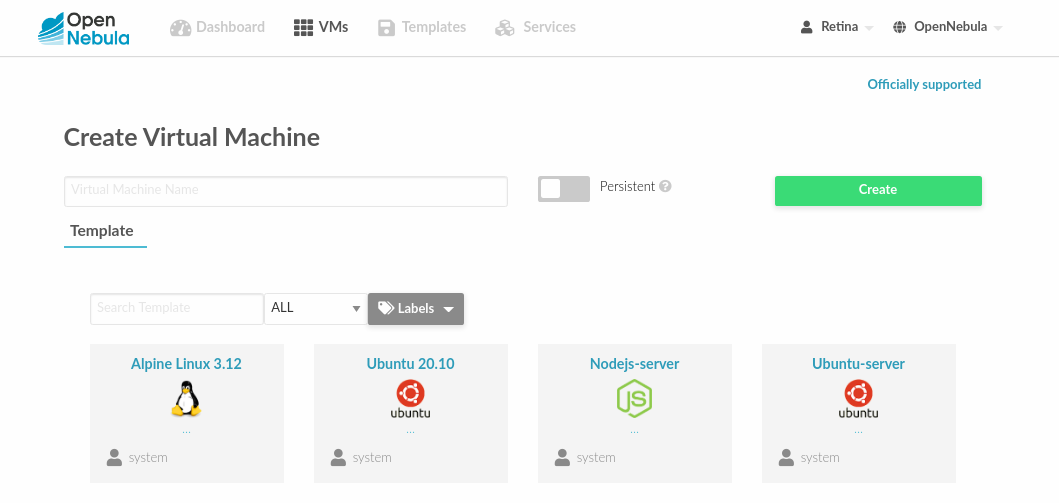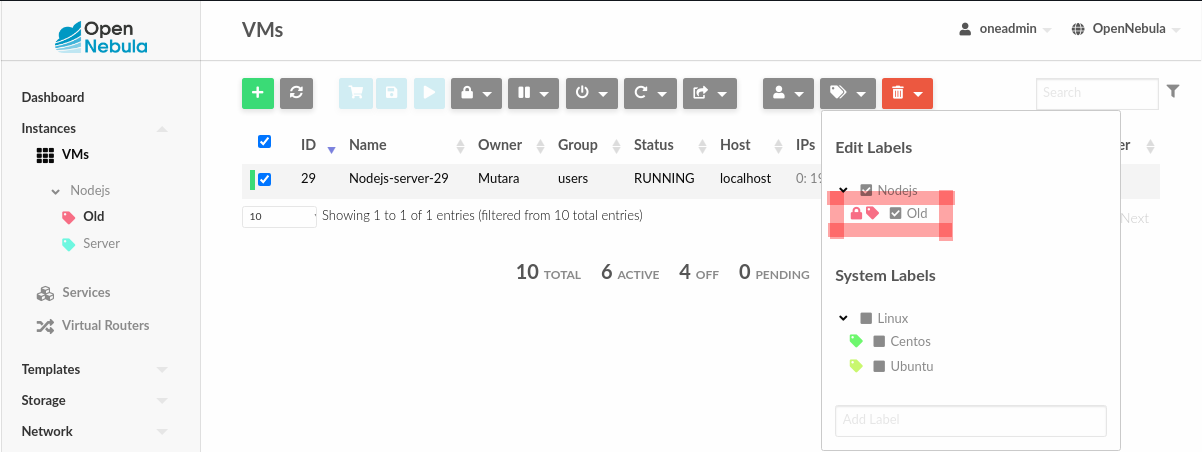Sunstone Labels¶
Labels can be defined for most of the OpenNebula resources from the admin view.
Each resource will store the label information in its own template, thus it can be easily edited from the CLI or Sunstone.

This feature enables the possibility to group the different resources under a given label and filter them in the admin and cloud views. The user will be able to easily find the template she wants to instantiate, or select a set of resources to apply a given action.

The list of labels defined for each pool will be shown in the left navigation menu. After clicking on one of these labels, only the resources with this label will be shown in the table.
This filter is also available in the cloud view inside the virtual machine creation form to easily select a specific template.

To create a label hierarchy, use slash character: /. For example, you could have the labels Linux/Ubuntu and Linux/RedHat.
Normalization¶
Labels have a few peculiarities worth taking into account:
When a resource is assigned a the label with hierarchy, e.g.
Linux/Ubuntuthe label parentLinuxisn’t automatically added, but you can do it manually.Labels created from Sunstone will ignore the labels case, and show them in lowercase with the first letter in uppercase. For example,
label with-spaces/andSubtreewill transform toLabel With-spaces/Andsubtree
Persistent Labels¶
Persistent labels have an extra behavior: it isn’t removed when it does not have associated resources.
To define persistent a labels we have two options: system label or user label.
User Labels¶
These labels will be saved in the User’s template through the CLI or Sunstone interface

When the user clicks on the padlock of already-created labels, it add the following block in the User’s template:
TEMPLATE = [
LABELS = "Nodejs/Old,Linux/Ubuntu"
]
System Labels¶
These labels are defined in /etc/one/sunstone-views.yaml.
You can separate them per groups of users or introduce them into the default section. For example:
logo: images/opennebula-5.0.png
groups:
oneadmin:
- admin
- groupadmin
- user
- cloud
default:
- cloud
default_groupadmin:
- groupadmin
- cloud
labels_groups:
oneadmin:
- Linux/Ubuntu
- Linux/RedHat
default:
- default